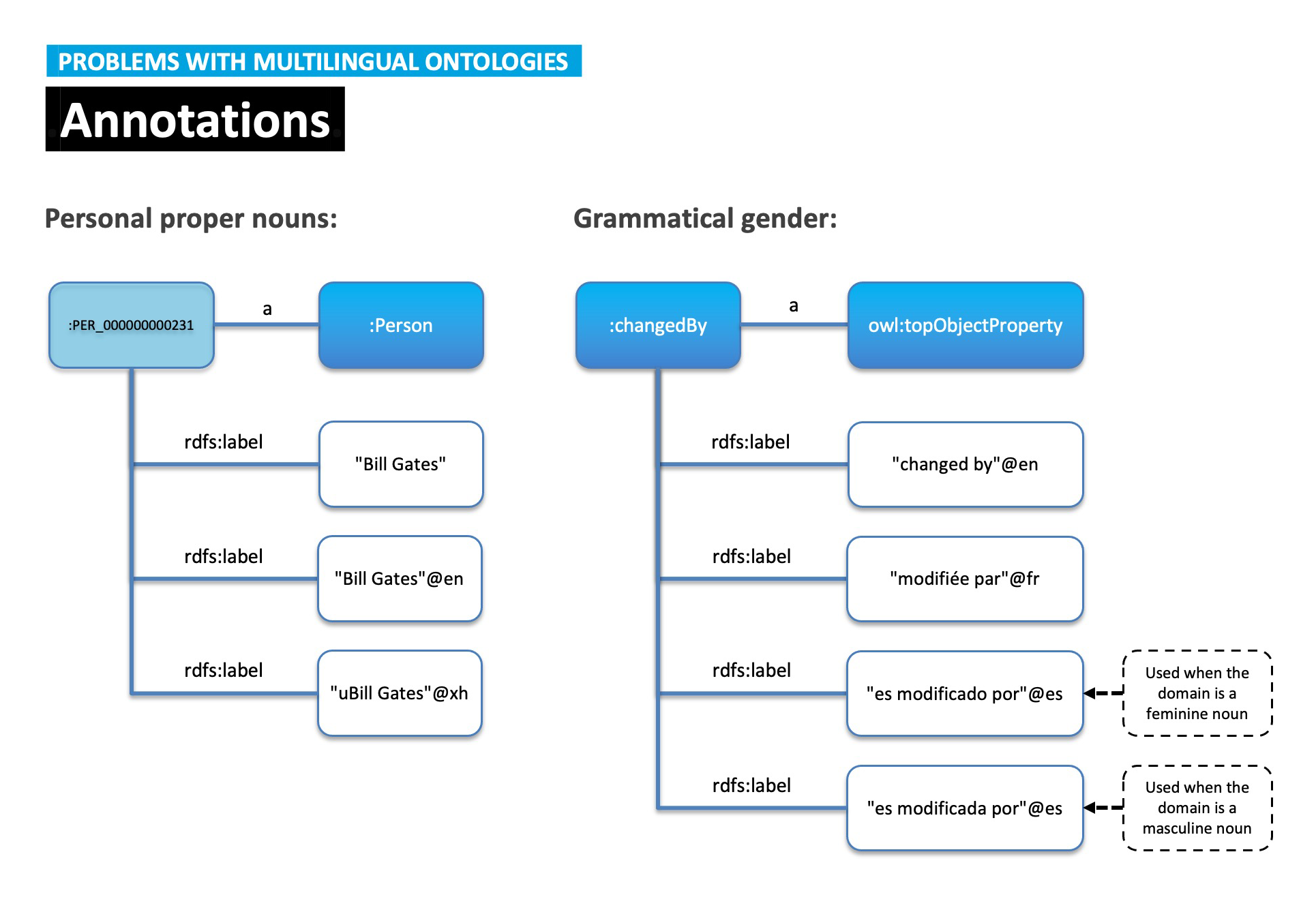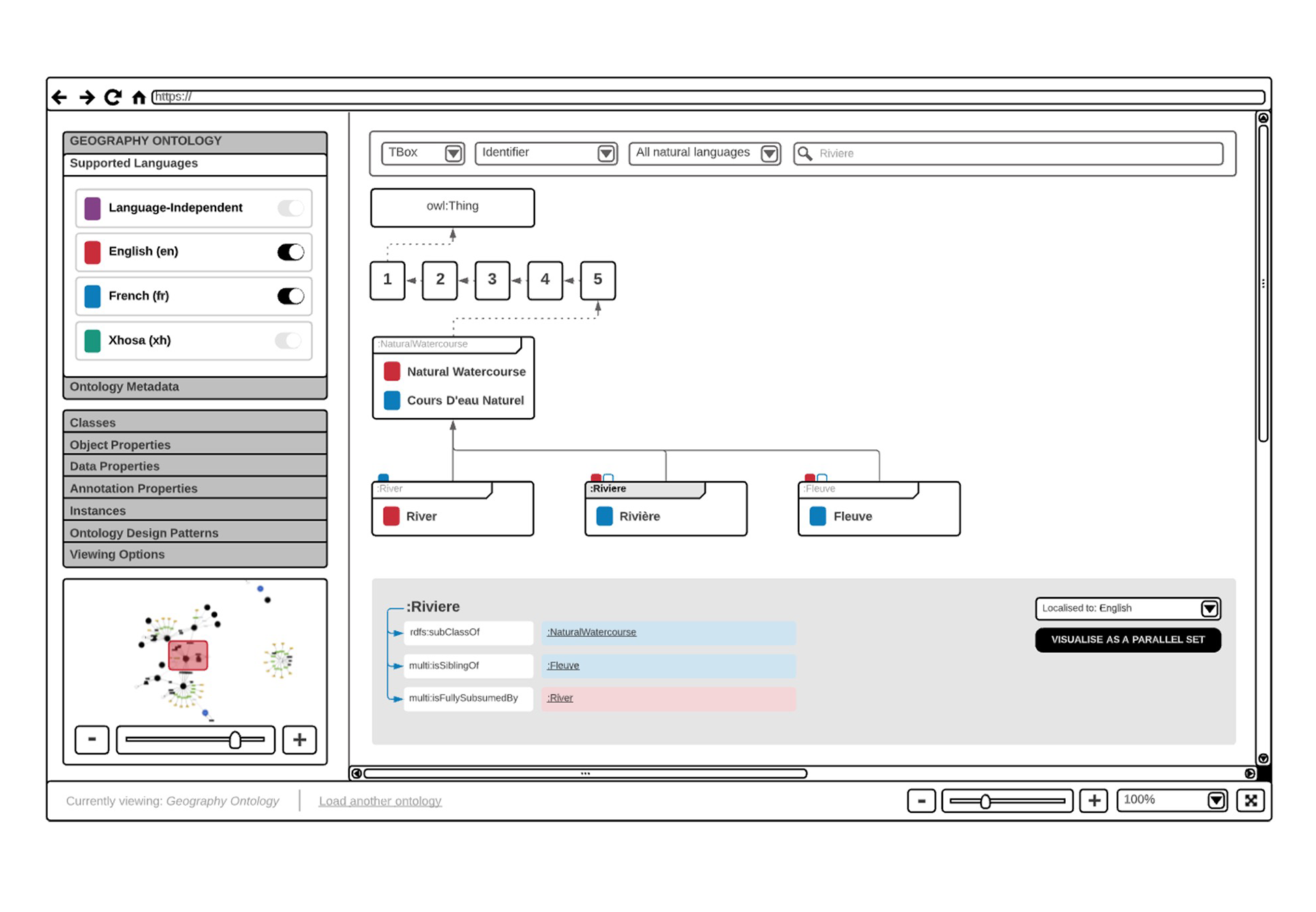Abstract
Ontologies are intended as a particular conceptualisation of the world. When formalised using Web Ontology Language (OWL), entities and axioms contained therein are typically annotated in a natural language, using rdfs:label. To create a multilingual ontology, each annotation is then translated into other languages, with the conceptualisation applied to those languages as well. The result is that a localised representation may not always be accurately conceptualised. The purpose of this research is to address the differing conceptualisations of languages in a single ontology, as well as the annotations of languages which cannot be correctly annotated using a single rdfs:label due to its grammatical features, such as inflected forms or grammatical gender. For the former, a model will be developed to allow for localised conceptualisations. For the latter, a language model will be created which considers the role a class plays in a relation with another class (where classes are both concepts). An expected outcome is the ability by an ontology engineer to develop a language-independent multilingual ontology, with localised conceptualisations as well, intended for use in an OWL application.
Videos 1
Watch presentations, demos, and related content
Research Proposal
Gallery 4
Explore the visual story of this exhibit

Conceptualisation - differences between French and English

Annotations - proper noun and grammatical gender examples

Wireframe of OWL application, filtering per natural language

More Information